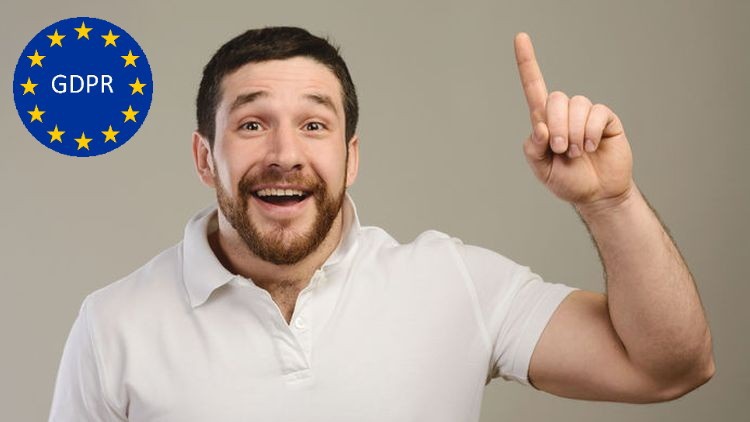Negli States va di moda chiedere la password di facebook, twitter, etc etc ai dipendenti e agli studenti.
E' qualcosa che va oltre la nostra nozione di corrispondenza privata e di riservatezza della vita privata.
Qualcosa si muove anche da loro: si sta limitando per legge, in California, la possibilità di chiedere i dati di accesso ai profili personali dei dipendenti.
"Assembly Bill 1844 (Campos) and Senate Bill 1349 (Yee) prohibit universities and employers from requiring that applicants give up their email or social media account passwords" gov.ca.gov
Per le scuole curiosamente c'è molta più tutela: esse hanno il terrore di essere screditate online, si legge nelle numerose policy che ho raccolto su legalgeek, ed il testo conferma che le scuole possono far valere i loro legittimi diritti. Potrebbero persino investigare, e chiedere volontariamente (?) allo studente di collaborare alle investigazioni. Chiedere ma non imporre, sembra dedursi dal testo.
Viene anche imposto di pubblicare le policy in materia sul web.
Una situazione molto interessante da seguire.
I testi sono qui disponibili:
THE PEOPLE OF THE STATE OF CALIFORNIA DO ENACT AS FOLLOWS:
SECTION 1. Chapter 2.5 (commencing with Section 980) is added to
Part 3 of Division 2 of the Labor Code, to read:
CHAPTER 2.5. EMPLOYER USE OF SOCIAL MEDIA
980. (a) As used in this chapter, "social media" means an
electronic service or account, or electronic content, including, but
not limited to, videos, still photographs, blogs, video blogs,
podcasts, instant and text messages, email, online services or
accounts, or Internet Web site profiles or locations.
(b) An employer shall not require or request an employee or
applicant for employment to do any of the following:
(1) Disclose a username or password for the purpose of accessing
personal social media.
(2) Access personal social media in the presence of the employer.
(3) Divulge any personal social media, except as provided in
subdivision (c).
(c) Nothing in this section shall affect an employer's existing
rights and obligations to request an employee to divulge personal
social media reasonably believed to be relevant to an investigation
of allegations of employee misconduct or employee violation of
applicable laws and regulations, provided that the social media is
used solely for purposes of that investigation or a related
proceeding.
(d) Nothing in this section precludes an employer from requiring
or requesting an employee to disclose a username, password, or other
method for the purpose of accessing an employer-issued electronic
device.
(e) An employer shall not discharge, discipline, threaten to
discharge or discipline, or otherwise retaliate against an employee
or applicant for not complying with a request or demand by the
employer that violates this section. However, this section does not
prohibit an employer from terminating or otherwise taking an adverse
action against an employee or applicant if otherwise permitted by
law.
SEC. 2. Notwithstanding any other provision of law, the Labor
Commissioner, who is Chief of the Division of Labor Standards
Enforcement, is not required to investigate or determine any
violation of this act.
SECTION 1. The Legislature finds and declares that quickly
evolving technologies and social media services and Internet Web
sites create new challenges when seeking to protect the privacy
rights of students at California's postsecondary educational
institutions. It is the intent of the Legislature to protect those
rights and provide students with an opportunity for redress if their
rights are violated. It is also the intent of the Legislature that
public postsecondary educational institutions match compliance and
reporting requirements for private nonprofit and for-profit
postsecondary educational institutions imposed by this act.
SEC. 2. Chapter 2.5 (commencing with Section 99120) is added to
Part 65 of Division 14 of Title 3 of the Education Code, to read:
CHAPTER 2.5. SOCIAL MEDIA PRIVACY
99120. As used in this chapter, "social media" means an
electronic service or account, or electronic content, including, but
not limited to, videos or still photographs, blogs, video blogs,
podcasts, instant and text messages, email, online services or
accounts, or Internet Web site profiles or locations.
99121. (a) Public and private postsecondary educational
institutions, and their employees and representatives, shall not
require or request a student, prospective student, or student group
to do any of the following:
(1) Disclose a user name or password for accessing personal social
media.
(2) Access personal social media in the presence of the
institution's employee or representative.
(3) Divulge any personal social media information.
(b) A public or private postsecondary educational institution
shall not suspend, expel, discipline, threaten to take any of those
actions, or otherwise penalize a student, prospective student, or
student group in any way for refusing to comply with a request or
demand that violates this section.
(c) This section shall not do either of the following:
(1) Affect a public or private postsecondary educational
institution's existing rights and obligations to protect against and
investigate alleged student misconduct or violations of applicable
laws and regulations.
(2) Prohibit a public or private postsecondary educational
institution from taking any adverse action against a student,
prospective student, or student group for any lawful reason.
99122. A private nonprofit or for-profit postsecondary
educational institution shall post its social media privacy policy on
the institution's Internet Web site.


